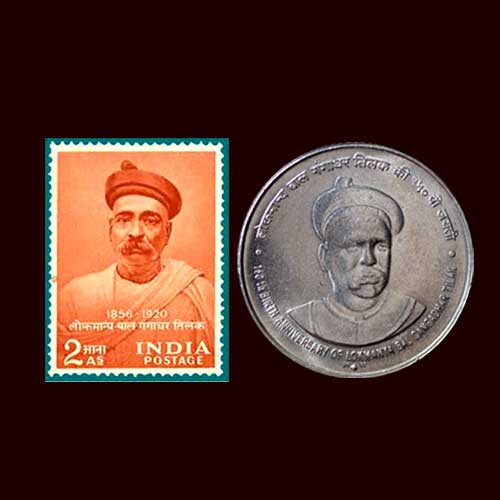Remembering Bal Gangadhar Tilak on his Birth Anniversary
2025-07-23 Wed
Born on 23 July 1856, in the Village of Chikhalgaon, Ratnagiri in Maharashtra, keshav Gangadhar Tilak, also known as Bal Gangadhar Tilak, was a prominent leader known by various titles. MahatmaGandhi honored him with the designation "The Maker of Modern India," while he was referred to as "The Father of indian Unrest" by British authorities. His prominent role as a mass leader earned him the title lokmanya," meaning "the one accepted by the people to lead them."Tilak's contributions extended across several fields: he was a teacher, Journalist, lawyer, and a pivotal figure in the Indian independence movement. He, along with his close associate Gopal Ganesh Agarkar, established two significant weeklies—Kesari in Marathi and Mahratta in English. To foster a sense of national identity among the populace, Tilak advocated for the public celebration of Hindu festivals, such as Ganesh Chaturthi and Shivaji Maharaj Jayanti. His four-fold program during the British era was particularly impactful, encompassing the principles of ‘Swaraj’, ‘Swadeshi’, ‘Boycott,’ and ‘National Education.’
One of Tilak's most notable assertions, "???????? ?? ???? ????????? ???? ??? ??? ?? ?? ????????," translates to "Swaraj is my birthright, and I shall have it." This statement is attributed to a speech he delivered in Belgaum, Karnataka, in 1916, which was originally crafted by his associate Joseph “Kaka” Baptista.
Tilak faced sedition charges three times and was sentenced to six years in Mandalay prison in Burma for his unwavering support of individuals involved in the Alipore bomb Case (1908-09) and his defense of revolutionaries, including Prafulla Chaki and Khudiram Bose. During his time in jail, he authored a commentary on the Bhagavadgita titled “Gita Rahasya.” Furthermore, he played an instrumental role in founding the All India Home Rule League, in collaboration with Annie Besant and G. S. Khaparde.
In addition to his political activism, Tilak was a scholar of Sanskrit and Astro-Mathematics. In 1903, he published "The Arctic Home in the Vedas," wherein he proposed that the Vedas were composed in the Arctic and that the Aryans migrated southward following the last ice age. He introduced a novel approach to dating the Vedas based on the positions of constellations.
However, this theory does not find support within the archaeological community. Recent discoveries at the Sinauli Archaeological site in #UttarPradesh between 2018 and 2019 have challenged this narrative. Additionally, a research paper published in 2019, titled "An Ancient Harappan Genome Lacks Ancestry from Steppe Pastoralists or Iranian Farmers," provided #Scientific evidence suggesting that significant migrations from Central Asia to India did not occur. This conclusion was drawn from DNA analysis of skeletal remains discovered in Rakhigarhi.
The contributions of Lokmanya Tilak have been acknowledged through the issuance of stamps by India Post on two occasions. The first was a commemorative #stamp released on 23 July 1956 marking the centenary of his birth. The second, a definitive stamp, was issued in 2015-2016 as part of the 11th series of definitive stamps.
Moreover, in 2007, the government of India minted a set of commemorative Coins of Rs 5 and Rs 100 to honor the 150th Birth Anniversary of Lokmanya Tilak, recognizing his lasting impact on the nation.
Latest News
-
Ghiyath Shah as Heir Apparent
2025-09-25 ThuGhiyath Shah was the ruler of the Malwa Sultanate, reigning from 1456 to 1500. From 1456 to 1469, he...
-
Malwa Sultan Mahmud Shah Silver Coins
2025-09-11 ThuMalwa Sultan Mahmud Shah minted silver coins in round and square flans. <br><br> For round coins,...
-
Malwa Sultan Mahmud Shah Billon coin
2025-08-26 TueMalwa Sultan Mahmud Shah's billon coins followed three weight standards: 100 rati, 96 rati, and 80 r...
-
Fascinating Archaeological Facts on Postage Stamps - 91
2025-08-23 SatRhinoceros is one of the oldest land mammal species existing in India. There are five species of rhi...
-
Fascinating Archaeological Facts on Postage Stamps - 90
2025-08-23 SatUthiramerur, a Village in Kanchipuram, Tamil Nadu, is notable for its Temple inscriptions that descr...

